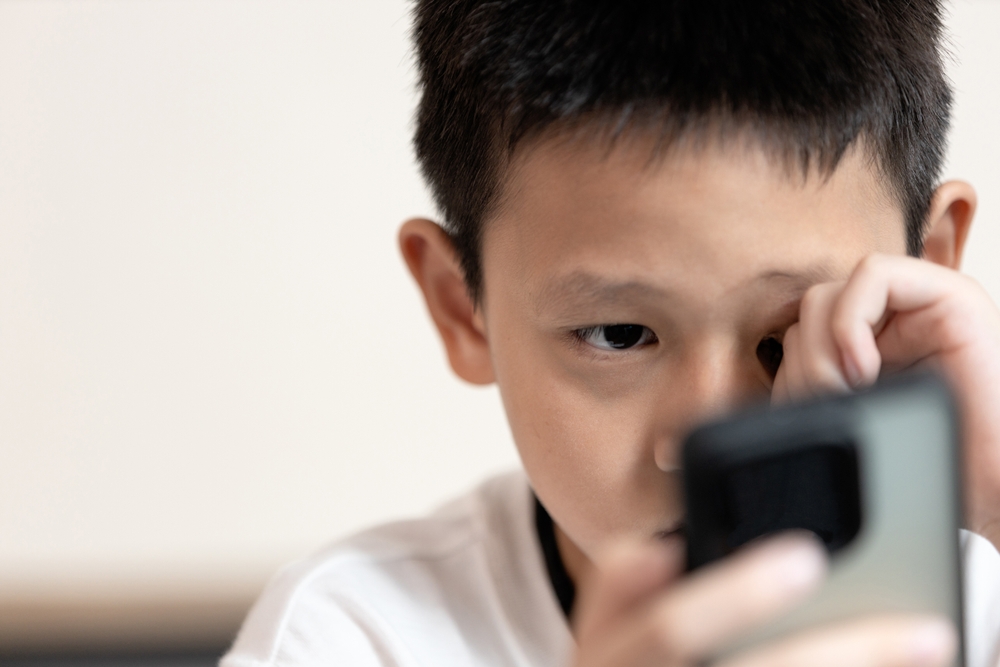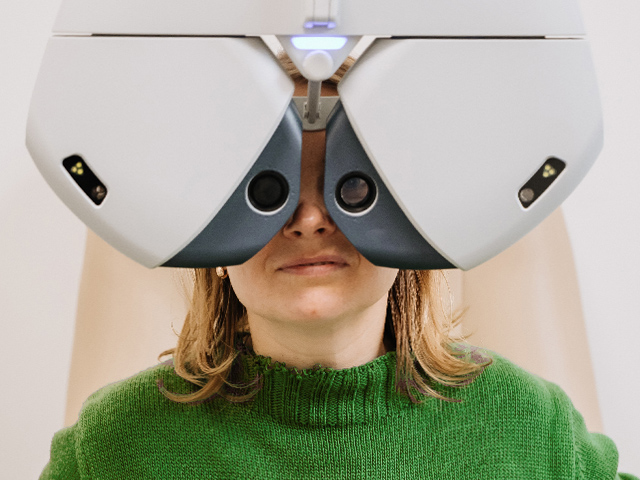
Myopia, commonly known as nearsightedness, is a refractive error that affects how your child sees the world. This condition occurs when the eye grows too long from front to back or when the cornea is too curved, causing light to focus in front of the retina rather than directly on it. Myopia often begins in childhood and tends to progress as the child grows.
Recognizing the Signs and Symptoms of Nearsightedness
It can be difficult for children to express vision problems, especially if they don’t realize their experience is different from others. Parents and caregivers should watch for these common signs of myopia:
Squinting while trying to see faraway objects (like the board at school or TV)
Sitting very close to the television or holding devices close to the face
Complaining of headaches or eye strain
Difficulty seeing road signs while riding in the car
Frequently rubbing eyes or blinking excessively
A noticeable decline in school performance or concentration
If your child displays any of these symptoms, it’s important to schedule a pediatric eye exam to assess their vision and determine whether nearsightedness is the cause.
The Role of Pediatric Eye Exams in Early Detection
Pediatric eye exams play a critical role in detecting myopia early. Unlike school vision screenings, a comprehensive eye exam evaluates how well your child’s eyes work together, checks for refractive errors, and examines overall eye health. Early diagnosis of myopia not only ensures your child sees clearly but also helps slow its progression, reducing the risk of serious eye conditions later in life such as retinal detachment, glaucoma, or macular degeneration.
The American Optometric Association recommends that children have their first eye exam between 6-12 months of age, another at age 3, and again before starting school. After that, annual eye exams are recommended unless otherwise advised by your eye doctor.
When to Consider Myopia Control Treatment
If your child is diagnosed with myopia, your eye doctor may recommend myopia control treatment. These specialized treatments are designed to slow the eye's elongation and reduce the long-term impact of myopia. Common myopia control options include:
Orthokeratology (Ortho-K): Special contact lenses worn overnight to reshape the cornea temporarily.
MiSight® 1 day Contact Lenses: Daily disposable soft contact lenses clinically proven to correct vision and slow the progression of myopia in children by controlling how light focuses on the retina.
Atropine Eye Drops: Low-dose drops shown to slow myopia progression.
Your optometrist at Alpha Eye Group can recommend the most appropriate treatment based on your child’s age, lifestyle, and the severity of their myopia.
Schedule Your Child’s Eye Exam Today
Understanding the signs of nearsightedness in children is essential for supporting their visual development, learning, and quality of life. By catching myopia early through regular pediatric eye exams and exploring effective control treatments, you can help preserve your child’s long-term eye health.
If you suspect your child may be nearsighted, schedule a pediatric eye exam at Alpha Eye Group to learn more about myopia management treatment. Visit our offices in Philadelphia, Wyomissing, Bethlehem Twp, Doylestown, Plymouth Meeting, or King of Prussia, Pennsylvania. Call (215) 698-7760, (610) 376-7272, (610) 866-1000, (215) 878-7181, (215) 230-4060, (610) 941-9780, or (610) 265-3100 to book an appointment.




